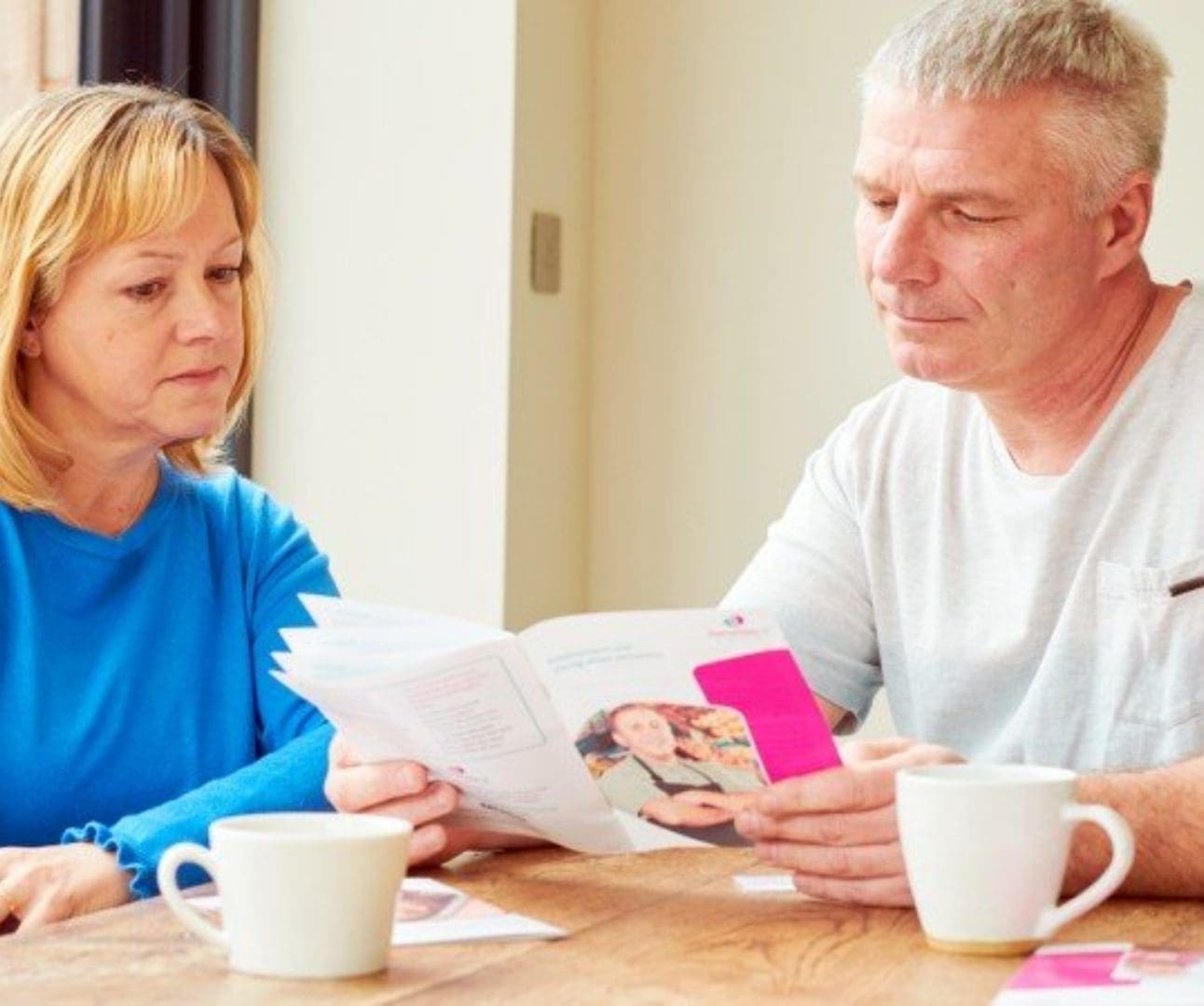
Young onset dementia
Information and resources about young onset dementia, where symptoms develop before the age of 65.
Rob’s shares his story of partner Jayne, who experienced behavioural changes after a car accident and was diagnosed with dementia at the age of 59.
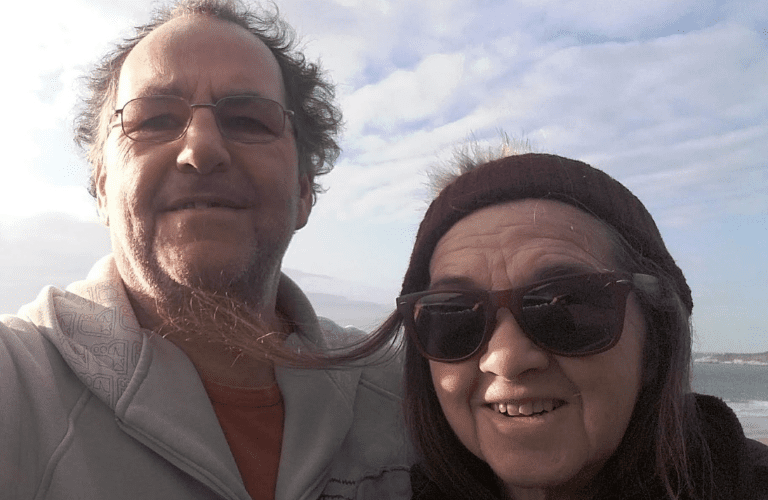
Rob and Jayne’s last photo together, March 2020
I met Jayne in 1994 when I was 29 and she was 33. I soon moved in with her and her three sons who were seven, 12 and 15 at the time.
Jayne was a kind, outgoing and happy person. She worked at a homeless charity and put her heart and soul into helping others. Jayne always encouraged me to grow and supported me in gaining the confidence to return to education. We both loved walking and spent lots of time outdoors together. For a long while, life was really happy.
In 2014, Jayne was involved in a serious car accident. She lost a lot of confidence after that. She gave up driving and didn’t return to work. Jayne started to rely on me a lot more and would become anxious if I was out of the house for too long. I decided to change jobs so that I could start at 5am and be home early for Jayne.
Jayne began to struggle with simple tasks like making breakfast, so I used to make it the night before and leave it out for the morning. One morning I came downstairs, and breakfast had gone. When I joked with Jayne about it, she couldn’t remember waking up in the night and eating it. That’s when I knew something wasn’t right.
In the years following the accident, the changes in Jayne’s behaviour started to become more significant. I took her to the doctor, but she didn’t want to go to the Memory Clinic as she wouldn’t accept that something was wrong. She was only 57 and I didn’t even consider that it could be dementia.
Jayne started having really vivid dreams, and on reflection, they were probably hallucinations. She would cry because she couldn’t change the channel on the television and once tried to get into the house using the remote control.
By 2018, Jayne thought I was an imposter, and she wouldn’t speak to me. I later learned that Jayne had Capgras syndrome, which is when someone believes their loved one has been replaced with an identical stranger. Jayne recognised my face, but she didn’t believe that I was Rob. That was incredibly difficult for me.
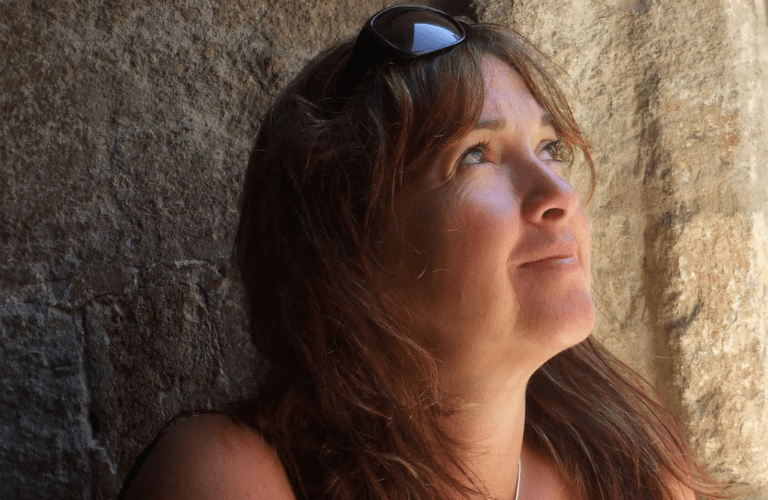
Jayne on holiday in Provence, 2010
Later that year, Jayne started fainting and she was admitted to hospital for three weeks. She saw a consultant neurologist who discharged her with a neurological disorder under investigation. They told us that the condition was likely to be treatable and gave Jayne some epilepsy medication. I wasn’t convinced and suspected there was more to it.
I picked up some literature on dementia in the hospital and that is when I first became aware of Dementia UK. I found the information on the charity’s website so useful, and I was convinced from that point on that Jayne had Lewy body dementia.
I called the Admiral Nurse Dementia Helpline in 2019 when Jayne’s hallucinations were getting really bad. The nurse gave me some great practical advice to help me care for Jayne. I am so grateful for the support I received – without it, I wouldn’t have known what to do.
In January 2020, Jayne had another episode of believing I was an imposter. It was a severe episode that went on for four days where Jayne thought I was ‘nasty Rob’ who killed ‘nice Rob’. We walked into a local pharmacy and Jayne told the pharmacist that I was following her. Eventually, she agreed to get in the car with me so that I could take her to hospital.
We saw a neurologist who was new in post, and when I described Jayne’s symptoms, he said that it sounded like dementia. I had waited two years for that moment. He spoke to Jayne like she was a human being and within 10 minutes, he had diagnosed her with dementia. Jane was just 59 years old. We were then able to access the Admiral Nurse service in the hospital which was a huge relief.
When I first sat with Angela, the Admiral Nurse, a massive weight was lifted off my shoulders. She understood what we were going through and empathised with me. She even gave me a hug.
Once the dementia diagnosis was made, everything changed – there was so much more support available to us. After Jayne was discharged from hospital, Angela rang me twice a week to check on how we were coping. She was a support for the whole family. Jayne was the youngest person to be diagnosed with dementia in the hospital, so I think the staff felt touched by our situation.
Jayne’s condition started to progress rapidly. The Covid-19 pandemic had just started, and the hospital needed to free up beds. I felt I had no choice but to put her in a nursing home. We just couldn’t cope anymore, and I knew it was the right thing to do.
Angela supported us as a family and helped us to organise everything, but it was the toughest decision of my life. Because of the pandemic, we couldn’t visit often. I was only able to visit Jayne four times whilst she was in the care home because of the Covid-19 restrictions.
In August 2020, the Community Mental Health Team went into the nursing home and assessed Jayne as they suspected that she might have Lewy body dementia. The diagnosis was made – if only it hadn’t taken such a long time.
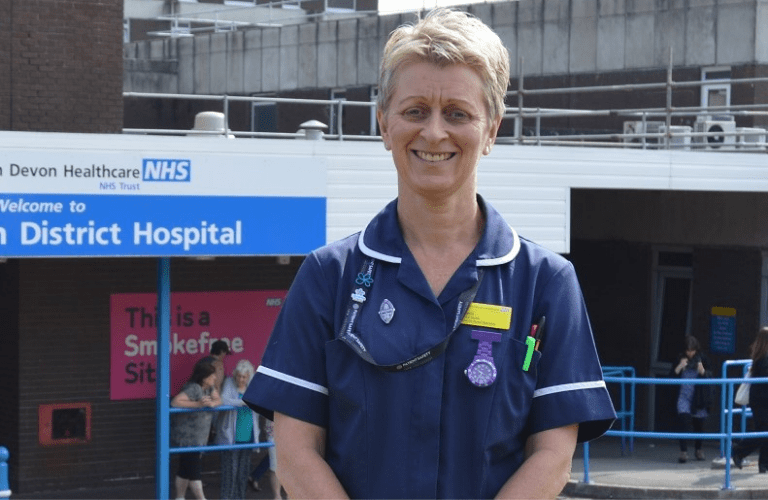
Admiral Nurse Angela Walter
In September 2020, Jayne was taken to A&E and Angela called me to say she already knew that Jayne was there. The consultant sat us down, and we knew what was coming: Jayne was dying. Angela sat with us and comforted the whole family.
I went home to get Jayne’s favourite jewellery, photos and flowers, and an iPad to play music. She passed away in a room full of everyone and everything she loved. The Admiral Nurses had spent time brushing Jayne’s hair and making her look like herself again. She looked like she was going to die at peace. That meant so much to us as a family.
The Admiral Nurse service, its Helpline, leaflets and website from Dementia UK were all crucial along our journey with dementia. Angela was always there for me from the minute we received the diagnosis, and she continues to support me to this day. She had the skills, patience and knowledge to support me, and I wouldn’t have managed without her. I am so grateful.
Our virtual clinics give you the chance to discuss any questions or concerns about dementia, including young onset dementia, with a dementia specialist Admiral Nurse by phone or video call, at a time that suits you.

Information and resources about young onset dementia, where symptoms develop before the age of 65.
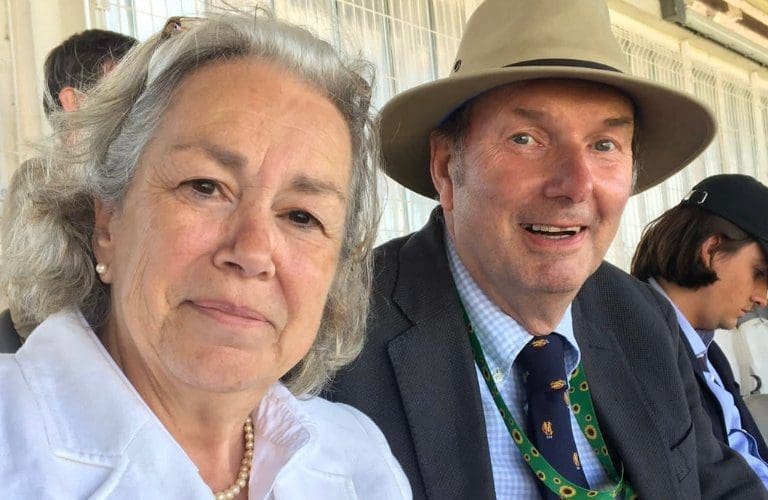
Philip, who is living with young onset dementia, shares how his love of cricket helps him stay mentally active.
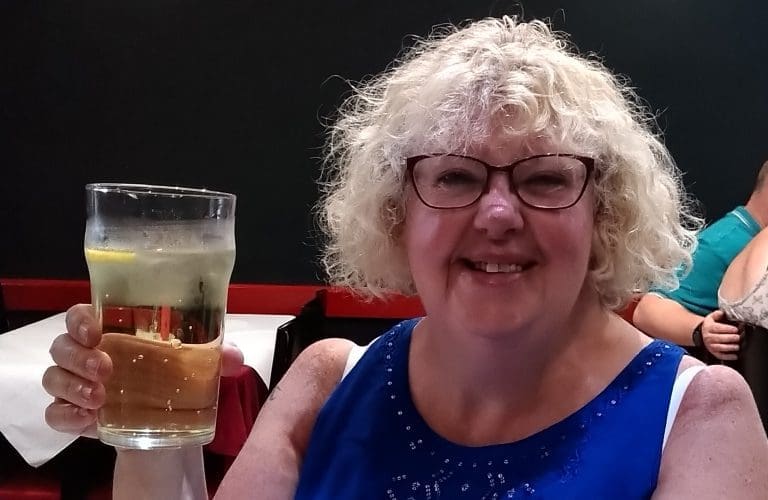
Tracey – diagnosed with posterior cortical atrophy aged 45 – lives alone and is determined to remain positive and active.